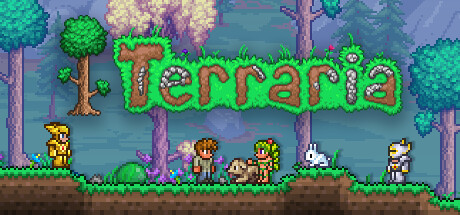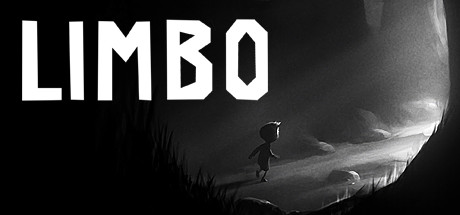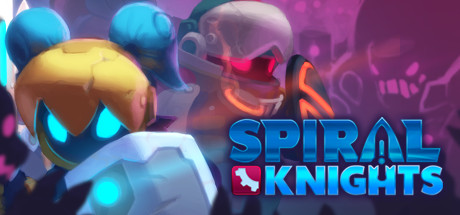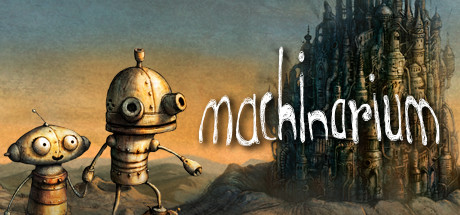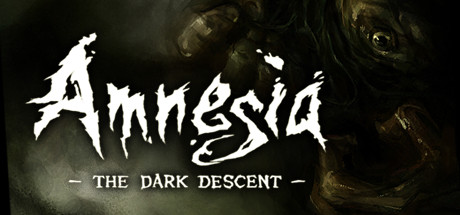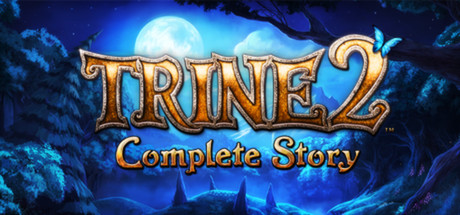
17
Players in Game
41 582 😀
3 400 😒
90,75%
Rating
$14.99
The Stanley Parable Reviews
The Stanley Parable is a first person exploration game. You will play as Stanley, and you will not play as Stanley. You will follow a story, you will not follow a story. You will have a choice, you will have no choice. The game will end, the game will never end.
| App ID | 221910 |
| App Type | GAME |
| Developers | Galactic Cafe |
| Publishers | Galactic Cafe |
| Categories | Single-player, Steam Achievements, Steam Cloud, Full controller support, Remote Play on TV, Remote Play on Phone, Remote Play on Tablet, Captions available |
| Genres | Indie, Adventure |
| Release Date | 17 Oct, 2013 |
| Platforms | Windows, Mac, Linux |
| Supported Languages | French, Italian, German, Spanish - Spain, Russian, English, Turkish, Danish, Dutch, Polish, Portuguese - Portugal, Ukrainian |

44 982 Total Reviews
41 582 Positive Reviews
3 400 Negative Reviews
Very Positive Score
The Stanley Parable has garnered a total of 44 982 reviews, with 41 582 positive reviews and 3 400 negative reviews, resulting in a ‘Very Positive’ overall score.
Reviews Chart
Chart above illustrates the trend of feedback for The Stanley Parable over time, showcasing the dynamic changes in player opinions as new updates and features have been introduced. This visual representation helps to understand the game's reception and how it has evolved.
Recent Steam Reviews
This section displays the 10 most recent Steam reviews for the game, showcasing a mix of player experiences and sentiments. Each review summary includes the total playtime along with the number of thumbs-up and thumbs-down reactions, clearly indicating the community's feedback
Playtime:
185 minutes
Great game that feels like it can go on forever and theirs always something new to find one of the most interesting games to play.
👍 : 0 |
😃 : 0
Positive
Playtime:
107 minutes
Not for me, the game seems very short if you read the reviews, got stuck in the elevator because they never fixed the bug
👍 : 0 |
😃 : 0
Negative
Playtime:
292 minutes
Missed the birth of my first born son to play for the entire duration of a Tuesday. Worth it.
👍 : 1 |
😃 : 2
Positive
Playtime:
9 minutes
This game just crashes on beginning a new game. I will try to force it to play on my PC but not really good to be honest.
👍 : 0 |
😃 : 0
Negative
Playtime:
335 minutes
In my honest opinion, this game is the BEST game ever! In it, you are lead by a Narrator and you could choose to either follow what he says or go against him, which will affect the Narrator in various ways. I wont spoil too much in case any of you guys haven't played it, but let's say, for example, if you go somewhere that isn't relevant to the story, then the Narrator says some very interesting dialogue. It depends largely on where, but still.. interesting!
This is like the only game I've ever seen that allows you to basically not listen to the Narrator, and the Narrator actually reacts to what you do.
Not only that, but in the Ultra Deluxe edition, there are more interesting characters. Characters like "The Settings", a character that seems to communicate to you through setting the time and sliders each time you boot up the game.
I really wish we had more games that did things that The Stanley Parable does. This is really the most unique and most fun game out there!!
👍 : 1 |
😃 : 0
Positive
Playtime:
323 minutes
Stanley wrote a Steam review for the game he was in. This brought Stanley a distinct sense of satisfaction, that he could reach out and share his opinion with the wider gaming world, hopeful that someone out there would care about what he had to say. What Stanley didn't know was that no one, not a single soul, would read his glowing review and base their purchasing decision upon it, making his efforts ultimately meaningless. Still, Stanley had to try because there was nothing else to do at work that day.
👍 : 2 |
😃 : 3
Positive
Playtime:
234 minutes
[h1] The End Is Never The End Is Never The End... [/h1]
Let's be honest with each other: how many times have you "gone through" different paths in the hope that you will find something else new? Probably, it was definitely more than 10-15 times.
Why did this happen? Probably, your curiosity and interest were so great that you wanted to go through this story over and over again, obeying or not obeying the narrator, following the plot or not, restarting and closing the game ...
And then you found out that there is [u]The Stanley Parable: Ultra Deluxe[/u], and, of course, you "passed" her in exactly the same way, hoping that the game will never end...
But, alas, the games will end someday - there's nothing you can do about it. One can hope that some third part of The Stanley Parable will be released, but it's impossible to make an infinite number of such games, constantly changing something in them, right?
Just go into these two games sometimes and remember what a good time it was the first time. Maybe they'll release a sequel, but that's a completely different story...
I'm betting this game 10 buckets out of 10 Stanley Figurines.
👍 : 2 |
😃 : 0
Positive
Playtime:
1698 minutes
Finally after 24-hours and 5 years, I have finally achieved 100% of this game; however, Even after almost 30 hours of game time I'm not even sure that I've experienced the whole game yet! Definitely buy if you're looking for a game that challenges the human mind.
👍 : 2 |
😃 : 0
Positive
Playtime:
1625 minutes
The Stanley Parable is a brilliantly subversive narrative experience that deconstructs the very concept of player agency in video games. Developed by Galactic Cafe and originally released as a Source engine mod in 2011 before evolving into a full standalone release in 2013 (and later receiving an expanded Ultra Deluxe edition), it defies categorization. It's not a game in the traditional sense, nor is it a walking simulator in the derogatory way some label narrative-driven titles. Rather, it's an interactive meta-commentary on storytelling, choice, and the illusions of freedom in game design, delivered with sharp wit, an unforgettable narrator, and a labyrinth of unexpected outcomes.
You begin as Stanley, a seemingly unremarkable office worker assigned to monitor data on a screen and press buttons accordingly. One day, the commands stop coming. Stanley leaves his desk and begins to explore his empty office building, and from there, the game unfolds into a series of branching paths, paradoxes, philosophical quandaries, and comedic absurdities. The central mechanic is choice—specifically, your relationship with the game's omnipresent narrator, voiced by the incomparable Kevan Brighting. He describes Stanley’s every move, and it’s up to the player to decide whether to follow his instructions or deliberately disobey. Each decision splinters the narrative further, leading to dozens of possible endings, each of which twists expectations in often hilarious or unsettling ways.
What makes The Stanley Parable so engaging is how it turns the act of decision-making into its own kind of puzzle. There are no enemies to fight or puzzles to solve in the traditional sense. Instead, the player is constantly navigating a web of narrative implications. One moment you might be confronting the illusion of choice in games; the next, you’re being ridiculed for trying to find meaning where there is none. The writing is razor-sharp, laced with dry humor, existential dread, and a sense of playful chaos that keeps you constantly on edge. Every path feels like it’s both mocking and rewarding your curiosity, making you question not only your role in the game but your assumptions about video games as a medium.
The game's design is deceptively simple. The office setting, with its sterile hallways and cubicles, feels mundane on the surface, but it's precisely this normalcy that makes its deviations so effective. When things start to break—walls open to reveal new corridors, the narrator rewrites reality, time loops collapse—the contrast is stark and unsettling. The environment subtly adapts to reflect the player’s choices or lack thereof, and every return to Stanley’s desk feels like the start of a new psychological experiment. The minimalist visuals serve the narrative’s goals perfectly, acting as a blank canvas onto which meaning is projected, subverted, and erased.
Technically, the game runs smoothly and has been optimized well, even in the Ultra Deluxe edition, which adds new content, fresh endings, and an entire subplot that critiques the concept of remakes and sequels in gaming. The expanded version is especially self-aware, as it reflects on the game’s own legacy, its fan reception, and even the absurdity of trying to “improve” something that was already designed to question improvement itself. This meta-layer adds even more richness to an already dense experience, making it feel like a recursive conversation between developers, critics, and players across time.
What sets The Stanley Parable apart from other narrative-driven titles is its commitment to being unsolvable. It’s not a mystery with a single answer or a story with a canonical ending. In fact, the more you try to understand it, the more it slips away. Some endings are bleak, others comedic, some are filled with philosophical musing, and still others are simply nonsense. But all of them contribute to the game’s central thesis—that control in games is often an illusion, and that even rebellion can be a kind of compliance if it’s anticipated by the design. By allowing the player to act freely within a tightly scripted framework, the game exposes the contradictions of choice and challenges the notion of authorship in interactive media.
There’s also a surprising emotional core beneath the layers of irony and satire. Amidst the comedy and critique are glimpses of loneliness, futility, and the desire for meaning. Stanley’s predicament—being trapped in an environment where everything is predefined—mirrors a very human anxiety about autonomy and purpose. The narrator, too, is more than a simple storyteller or antagonist; his growing frustration, confusion, and even vulnerability in certain paths give him depth and complexity. These emotional moments are subtle but profound, offering the player a rare chance to empathize with both the protagonist and the voice controlling his world.
In conclusion, The Stanley Parable is not a game that can be completed in any traditional sense. It's a piece of interactive art designed to provoke thought, incite laughter, and challenge the boundaries of what video games can be. It’s one of those rare titles that lingers long after you close it, not because of what it made you do, but because of what it made you consider about the act of playing itself. With its unique structure, brilliant narration, and philosophical depth, it remains a landmark experience that rewards curiosity, introspection, and a willingness to embrace ambiguity. Whether you're a veteran gamer or someone new to the medium, The Stanley Parable is essential—not just to play, but to think about.
Rating: 9/10
👍 : 5 |
😃 : 0
Positive
Playtime:
630 minutes
It is not a horror game, although it may look like one. Try it. Maybe you'll impress the narrator.
👍 : 4 |
😃 : 1
Positive


